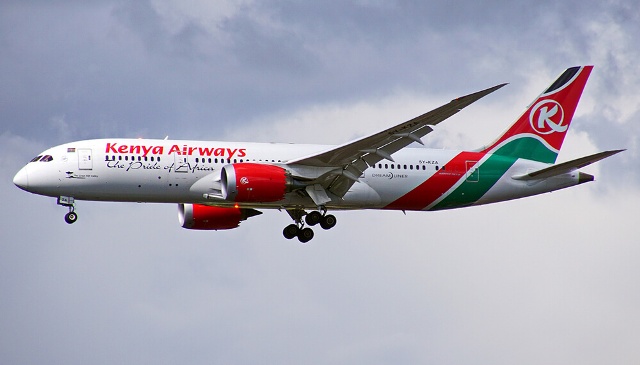Share this
Kenya Airways (KQ) has released a statement it says is meant “to correct recent media comments about its ownership and past business decisions.”
In the statement signed by KQ Board Chairman, Michael Joseph, the airline seeks to clarify its position and respond to some of the issues raised regarding the airline’s financial turmoil and ownership.
Regarding the cause of its financial difficulties, the airline says that In 2011, it increased its revenues to $1.077 billion from $320 million in 2002. To sustain this growth, KQ conceived an ambitious strategic plan called Project Mawingu.
This plan aimed to increase the airline’s destinations from 53 to 115. The project was estimated to cost $3 billion, which would be funded primarily through debt.
The plan relied on certain economic and market assumptions. These included an increase in global GDP growth, a forecasted economic growth rate of 5.3% by 2011, and an increase in the population of East Africa to about 228 million people by 2030. However, the market context changed significantly after 2012 due to factors such as the adverse terrorism advisories on Kenya in 2013 and the Ebola pandemic in Western Africa in 2014.
These factors, KQ says, precluded Project Mawingu’s objective of dominance in the African aviation market from being attained. Consequently, KQ’s revenues dipped, and the airline struggled to meet its payment obligations, especially loans and other long-term commitments.
The COVID-19 pandemic worsened the situation for the airline, leading to most airlines being grounded. The government of Kenya gave financial support to KQ to help it recover and reform its network, fleet, and operations.
This support is contingent on KQ adhering to agreed reforms, including permanent cost reduction measures, increased productivity, and improved operational efficiencies.
With regard to ownership, the airline clarifies that KQ is a publicly listed company with the Government of Kenya as the majority shareholder.
The current shareholding structure, as of November 2022, is as follows: the Government of Kenya owns 48.9%, KQ Lenders 2017 Ltd. owns 38.1%, KLM owns 7.8%, and minority shareholders and employees own 2.8% and 2.4%, respectively.
KQ maintains that it is not owned by other entities, namely, Tsavo and Serengeti. In 2010, KQ sought a financing facility to acquire some aircraft.
As a result, a Special Purpose Vehicle (SPV), Tsavo Aircraft Financing LLC, was incorporated by the financiers JP Morgan Chase Bank, Citibank NA, and Afreximbank.
KQ hopes that this statement clarifies any misinformation about its ownership and business decisions. The airline is committed to implementing the necessary reforms to ensure its financial viability and growth.
Samburu Limited was formed to borrow funds from a syndicate led by Standard Chartered Bank to purchase ten Embraer E190 aircraft.
The syndicate also included China Development Bank, Trade Development Bank, Nedbank Int’l Ltd, and Afrexim Bank.
In their defense over the use of SPVs, KQ says:
Most lenders adopt this finance structure in aircraft purchase transactions globally to minimize the risks associated with ownership and operation of aircraft during loan repayment periods. The SPV holds the aircraft title for the term of the loan and will only pass to the airline upon the full repayment of the loan.
Kenya Airways (KQ) says it has engaged with lessors to reduce the overall costs of aircraft lease rentals, resulting in a cash flow saving of 22%.
The board and management have made significant progress in arriving at substantially reduced rates, which will provide much-needed relief to KQ as part of its turnaround strategy.
The statement says the lease costs depend on several factors, such as negotiating power, economies of scale, timing, fleet size, aircraft age, and duration of lease. During periods of low aircraft demand, such as the COVID-19 pandemic, leasing rates tend to be lower.
Regarding the selling of its London Heathrow slot in 2016, KQ stated that it was a purely business decision to optimize its network by reducing aircraft ground time at the airport.
The slot was monetized, and a better slot was negotiated that allows KQ to land and take-off within the shortest ground time. KQ currently flies ten times weekly to London. Slots at Heathrow have commercial value, and KQ’s decision was made through a transparent process.
The statement further addressed accusations of impropriety and unfair recruitment processes, saying their operations and processes are above board.
We want to reiterate that KQ business transactions are fully transparent. All lessors and financiers are international reputable companies and to refer to them in any other way erodes the confidence of these entities, who have partnered with KQ for many years.





